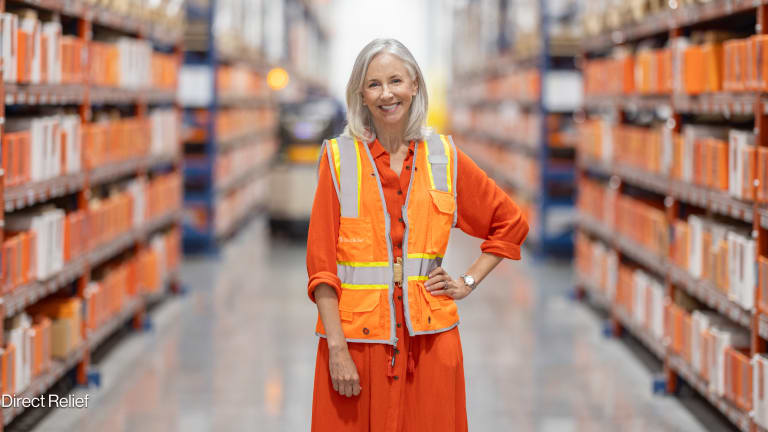
CANBERRA — For the humanitarian sector, COVID-19 provides a range of challenges. Bringing in international support after a disaster could be impossible due to travel restrictions or create the risk of staff infecting local communities with the new coronavirus. And supply chains may be heavily affected — including the ability to procure and deliver medical supplies needed in response to a disaster.
But at the same time, a new paper from the Humanitarian Advisory Group highlights the opportunities that are presented, as localization and empowerment of local leadership are expected to be sped up due to COVID-19.
COVID-19 — a timeline of the coronavirus outbreak
Follow the latest developments on the new coronavirus that causes COVID-19.
“I think that it is certainly forcing the hand of international agencies — ones that have been thinking about it and talking about but not actually doing it,” said Jessica Lees from the Humanitarian Advisory Group, referring to the transition to localization. “It is forcing them to fast-track commitment because of restrictions on travel and more.”
The effect on localization
The paper identified that the “likely impact” of COVID-19 is an opportunity for the humanitarian sector to advance its localization commitments, including expanding national partner bases and supporting systems that better engage national staff and resources in responses. It will also reduce the burden on local systems that are less likely to be overwhelmed by international support.
For humanitarian organizations that have not transitioned to a local-first approach in their responses, COVID-19 is challenging their systems. But Lees said that even for organizations that are prepared, this is still a difficult time.
“For agencies that have done a lot of thinking about localization and are prepared for it, I think that it is positive — but it is not something you can flick a switch and enable,” she said. “So it will still test a lot of the work that agencies have been doing to strengthen local leadership for response.”
But, Lees said, dilemmas could emerge if the national architecture is overwhelmed and there is a need for international support.
“Governments will not only be responding to COVID in their context, and there is then another layer of a humanitarian challenge on top of that; it might overwhelm the system. If there are restrictions on any support coming from outside, then that might be more negative than positive,” she said.
With Cyclone Harold already affecting the Pacific, Lees said that humanitarian systems are now being stressed in the region. And both the cyclone and COVID-19 are helping the sector to better understand limitations and where systems need to be strengthened — including in ensuring engagement with local suppliers rather than a heavy reliance on international supply chains.
“Being able to understand what works and doesn’t in specific contexts now will not only help throughout the entirety of the COVID response, but also long term.”
— Jessica Lees, Humanitarian Advisory GroupIn terms of how humanitarian organizations are responding, Lees said some are embracing the transition to localization while others are taking a wait-and-see approach. But in the end, she said localization would become standard.
“Going forward, it will become the new normal for agencies to continue using localized responses and programs to continue being relevant,” she said.
The impact on service delivery
In addition to embracing opportunities that COVID-19 creates, Lees said it is important to collect data on what is and isn’t working within the humanitarian sector and to embrace information sharing.
“Because this is such a shift for so many organizations, putting in place processes and systems to monitor change — including positive or negative impacts — will be important,” she said, “especially if this will fundamentally shift how the sector responds.”
Collating some of those best-practice responses, Lees said, will help other humanitarian actors make fundamental shifts required during this time. Best practices in the sector are not well understood at the moment, but the Humanitarian Advisory Group plans to provide insight on them through its research.
“We know it is a challenging time to be thinking about data collection now, but it is very important. Being able to understand what works and doesn’t in specific contexts now will not only help throughout the entirety of the COVID response, but also long term. This is an important time for the sector to come together and share,” Lees said.
Visit our dedicated COVID-19 page for news, job opportunities, and funding insights.









